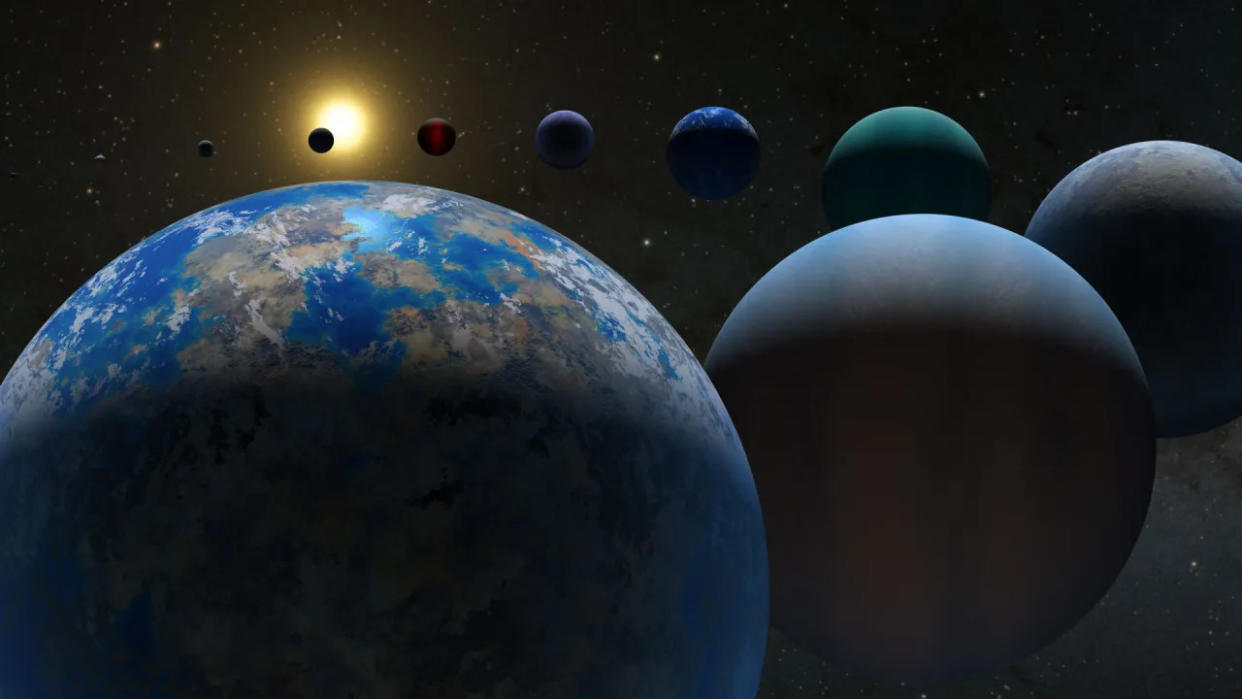'What exactly is a planet?' Astronomers want to amend the definition

Three astronomers last week proposed expanding the official definition of a planet to encompass worlds orbiting stars other than our own, a nuance not currently included in the formal definition of the term established in 2006 by the International Astronomical Union, or IAU. If the trio's new definition pans out, thousands of celestial bodies across the universe could be confirmed as formal planets.
For a celestial body to qualify as a planet per the current IAU definition, it must orbit the sun, should have cleared the area around its orbit, and must have enough mass that its gravity would have sculpted it into a nearly round shape in order to be a "planet." The third requirement is particularly vague because it does not quantify just how round the celestial body should be, according to a team led by astronomer Jean-Luc Margot of the University of California in Los Angeles (UCLA).
"The Earth isn't completely round, so how round does a planet have to be?" study co-author Brett Gladman, who is an astronomy professor at the University of British Columbia said in a recent statement. "If you look at a world orbiting another star, with current technology, we can't measure the shape."
The researchers also say some aspects of the current definition are too specific, such as the one that requires planets must orbit our sun, because it excludes thousands of worlds around other stars in the universe that otherwise meet the criteria to be called a planet.
Related: Evidence of water found in atmosphere of mysterious 'metal god of war' exoplanet
"We now know of thousands of 'planets' orbiting other stars, but the IAU definition applies only to those in our solar system, which is obviously a big flaw," said Margot. "We propose a new definition that can be applied to celestial bodies that orbit any star, stellar remnant, or brown dwarf."
In a paper posted to a preprint server on July 10, which is soon to be published in the Planetary Science Journal, Margot and his colleagues propose determining planetary status of a celestial object based on its mass. Per the proposed definition, a world could be called a planet if it is within certain mass limits. For instance, it must be lighter than 13 Jupiters, beyond which nuclear fusion begins and the object is no longer a planet but rather a substar called a brown dwarf.
"Having definitions anchored to the most easily measurable quantity — mass — removes arguments about whether or not a specific object meets the criterion," said Gladman. "This is a weakness of the current definition."
Pluto, which in 2006 was demoted to a dwarf planet in a highly-debated decision by the IAU, would be lighter than the lowest limit suggested by the newly proposed definition, and would thus continue to remain a dwarf planet.
Related Stories:
— Extreme 'hot Jupiter' exoplanet stinks like rotten eggs and has raging glass storms
— James Webb Space Telescope suggests this exoplanet is our 'best bet' at finding an alien ocean
— NASA space telescope finds Earth-size exoplanet that's 'not a bad place' to hunt for life
Additionally, the current IAU definition requiring planets to have "nearly round" shapes is difficult to implement, Margot and his team argue, and thus is effectively useless as shapes of many faraway worlds cannot be resolved with certainty. Instead, using thresholds based on mass would "replace a vague and impractical prescription regarding roundness," the researchers write in the new paper.
"We're drawing a line in the sand by putting some numbers to these definitions, to encourage our community to start the discussion: What exactly is a planet?" said Gladman.
The IAU has so far made no announcements about possible changes to its official definition of a planet. The UCLA statement noted that Margot is scheduled to present the proposed definition next month at the IAU General Assembly in Cape Town, South Africa. IAU's resolutions are typically voted upon by its members during the general assemblies.

